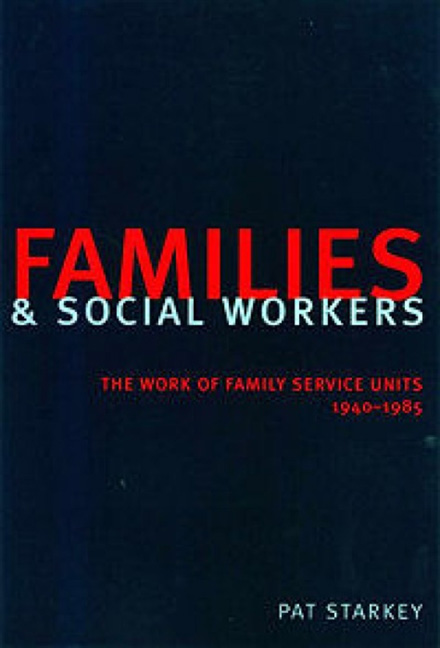Book contents
- Frontmatter
- Contents
- Acronyms and abbreviations
- Introduction
- 1 Pacifist Service
- 2 Problem Families, Eugenics and FSU
- 3 The Growth of a Social Work Agency
- 4 Changes and Adjustments
- 5 Training and Professional Development
- 6 Changing Relationships with the State
- 7 Almost Not An Organisation
- Conclusion
- Bibliography
- Index
5 - Training and Professional Development
- Frontmatter
- Contents
- Acronyms and abbreviations
- Introduction
- 1 Pacifist Service
- 2 Problem Families, Eugenics and FSU
- 3 The Growth of a Social Work Agency
- 4 Changes and Adjustments
- 5 Training and Professional Development
- 6 Changing Relationships with the State
- 7 Almost Not An Organisation
- Conclusion
- Bibliography
- Index
Summary
FSU's infancy coincided with a period of significant and far-reaching changes in social work. These changes, driven by a growing sense of professional identity, in turn prompted improved opportunities for training. To some extent the process was also informed by concern over social problems that were not new but that had, to a greater or lesser extent, been uncovered by the experience of war between 1939 and 1945. Such problems were exemplified by the poor living conditions revealed by the evacuation of children in 1939, and the 1943 report on British cities by the Women's Group on Public Welfare, initiated in response to the experience of evacuation. Concern that the welfare of children left a lot to be desired was exacerbated by the murder of Dennis O'Neill by his foster father in 1945, and the findings of the Curtis committee in 1946. FSU had added to the literature of deprivation through its publication of Problem Families and had contributed to a discussion in which a number of welfare workers (but particularly MOHs) had engaged both during and after the war in an attempt to describe and explain the phenomenon of the problem family. These processes had served to highlight uncomfortable aspects of British social life and the need for energetic action to tackle them. There were, however, too few people competent to undertake the work. Those whose personality, background or inclination had led them to undertake the care of people in difficult circumstances tended to be given the generic title ‘social worker’. There was little agreement about what a social worker was, however, except that – as Eileen Younghusband pointed out – like a cat, she was traditionally feminine. Her gender also meant that she could be considered professionally inadequate. There was a tendency, which Younghusband deplored, to believe that a female social worker needed training, whereas her male colleague was assumed to have acquired all he needed to know through some all-sufficing experience of life which was seen as a substitute for, and not an enhancement of, training.
- Type
- Chapter
- Information
- Families and Social WorkersThe Work of Family Service Units 1940–1985, pp. 141 - 173Publisher: Liverpool University PressPrint publication year: 2000



